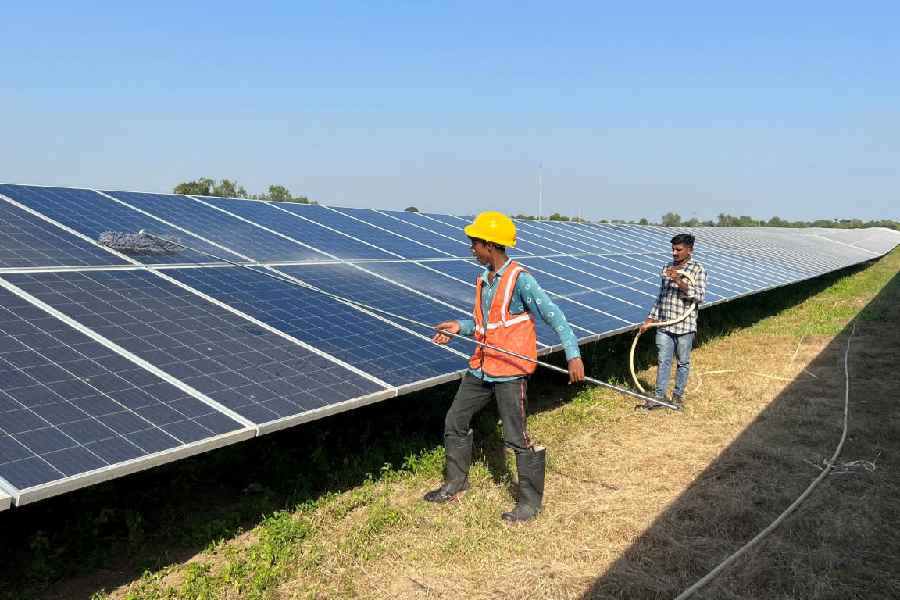Land scarcity will pose a major challenge to India’s efforts to expand renewable energy, with both solar electricity and waste recycling of renewable materials requiring large tracts of land, the Economic Survey 2023-24 released on Monday has cautioned.
The Survey has said expanding renewable energy and clean fuels will increase demand for land and water against the backdrop of “rapidly depleting land and water resources”.
“Most renewables are land intensive and demand the highest land use requirements among different energy sources,” the survey said, also pointing out that India’s land per capita is the lowest among the G20 countries. India’s land per capita is 0.002sqkm. In contrast, China’s land per capita is 0.007sqkm, or 3.5 times higher, while Brazil’s land per capita is 0.039sqkm, 19 times higher.
The survey, citing a report from the Office of the Principal Scientific Adviser (PSA) to the central government, has estimated that 1MW of solar photovoltaic panels that turn sunlight into electricity may require 1 to 1.5 hectares of land. A 60GW solar power would need 600-900sqkm.
Coal, oil and natural gas accounted for nearly 84 per cent of India’s primary energy mix in 2022-23. But the expansion of renewable energy has significantly changed the composition in the electricity sector with non-fossil power capacity rising to 45 per cent in May 2024 from 32 per cent in April 2014.
India has pledged to increase its non-fossil power capacity to 500GW by 2030, enhancing solar power capacity from 82GW in 2024 to 280GW by 2030. Towards those goals, in February this year, the Centre launched a ₹75,000 crore scheme seeking to add 30GW solar capacity.
The cost of the country’s transition from fossil fuels towards renewable energy would be amplified with the expected increase in the need for land for renewable energy projects, the survey said, adding that renewable materials waste recycling is “another challenge”.
Solar photovoltaic panels’ waste worldwide is estimated to be as massive as 78 million tonnes by 2050. Solar photovoltaic panels have a lifetime of 25 to 30 years after which the discarded material can either make its way to a landfill or be recycled.
“The route to landfills is remarkably cheaper than recycling, however, this may lead to leaching of harmful chemicals and heavy metals into the soil,” the survey said.
“Photovoltaic waste recycled as scrap poses risks to the environment and human health due to toxic metals for which we need a comprehensive policy for managing photovoltaic waste,” the survey said. While India’s Waste Management Rules 2022 address concerns relating to disposal practices, the survey cautioned that “the challenge imposed by the scale cannot be overlooked”.
The survey, citing the report from the PSA’s office, said coal is projected to remain the backbone of India’s energy mix over the next two decades.











